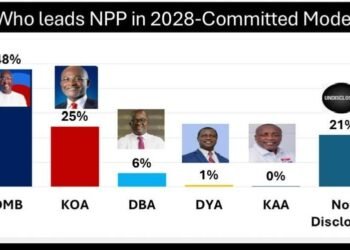According to Dr. Theo Acheampong, a petroleum economist, and political risk analyst, the result of the Ghana-Eni arbitration dispute was largely expected and did not come as a surprise.
He stated that he has consistently maintained, since the beginning of this dispute, that the need to drill an appraisal well to unequivocally confirm the basis for unitization was being hindered by vested interests.
Dr. Acheampong emphasized that the oil industry operates according to established protocols and processes, not arbitrary decisions made by ministers and that no individual can unilaterally override these established procedures.
“Ghana lost on the substantive issue. Every country [it is common knowledge] has the right to ask parties to unitize oil fields to exploit their petroleum resources efficiently. However, the process of doing this matters”.
“The Arbitral Tribunal found that ‘in the circumstances in which they were issued,’ the Unitization Directives breached the Petroleum Agreement. That is, the unitization was contrary to the applicable regulations and thereby breached Article 26(2) of the Petroleum Agreement”.
Dr. Theo Acheampong
Dr. Acheampong further stated that the issue of cost awards is a mere distraction, as both parties had partial victories and should therefore bear their own legal costs, cautioning Ghanaians not to be misled by this aspect of the case.
He highlighted that government officials in Ghana neglected to adhere to established protocols to substantiate the rationale for unitization.
According to Dr. Acheampong, the key question is whether there was a dynamic connection between the WCTP field (Springfield) and the OCTP field (Eni), which would indicate a flow of resources between the two fields.
“It is impossible to answer this without further appraisal drilling which Springfield itself alludes to in the documentation accompanying the case”. – Dr. Theo Acheampong
Dr. Acheampong pointed out that the tribunal acknowledged in paragraphs 420 and 421 that the completion of an appraisal well was a necessary precursor to imposing unitization and determining tract participation, emphasizing the importance of proper procedure.
Tribunal Finds Ghana’s Unitization Measures Flawed
Furthermore, Dr. Theo Acheampong pointed out that the Tribunal ultimately concluded that the unitization measures implemented by the First Respondent were marred by numerous substantive and procedural deficiencies, highlighting significant flaws in the decision-making process.

“In reaching this conclusion, the Tribunal did not analyze all of the Claimants’ allegations and evidence, although it did consider them, given that the aspects reviewed proved sufficient to conclude that the unitization was contrary to the applicable regulations and thereby breached Article 26(2) of the Petroleum Agreement”.
Dr. Theo Acheampong
Dr. Acheampong urged Ghanaians to recognize that, contrary to the government’s claims, Ghana did not emerge victorious in the arbitration case, and that a more nuanced understanding of the outcome is necessary.
Dr. Acheampong emphasized that a thorough examination of the arbitration judgment reveals that Ghana ultimately lost the central issue of forced unitization, despite any attempts to spin the outcome as a victory.
He observed that, while Ghana didn’t succeed on the main issue, the fact that no costs were awarded could be seen as a small consolation prize, allowing one to argue that it was a partial victory, albeit a stretch.
Dr. Acheampong observed that, aside from paragraphs 20(b)(1 and 2), which related to Eni and Vitol’s claim for damages due to the government’s breach of obligations, the Government of Ghana’s seven other claims were entirely unsuccessful, with none of them being granted by the tribunal.
He observed that while the country was spared a direct judgment debt, the government’s actions have nonetheless resulted in significant losses and consequences for the industry as a whole.
He noted that the government’s actions have led to a significant erosion of investor trust, causing many to divert their investments to alternative destinations like Cote d’Ivoire, highlighting that the true impact goes beyond the direct financial cost, which is relatively minimal.
“Our oil industry is in a decline; doing a paltry 130Kbpd (from a high of 190Kbpd) when we should be doing over 400Kbpd now”. – Dr. Theo Acheampong
READ ALSO: Lack of Funds in the Music Industry, a Common Misconception























